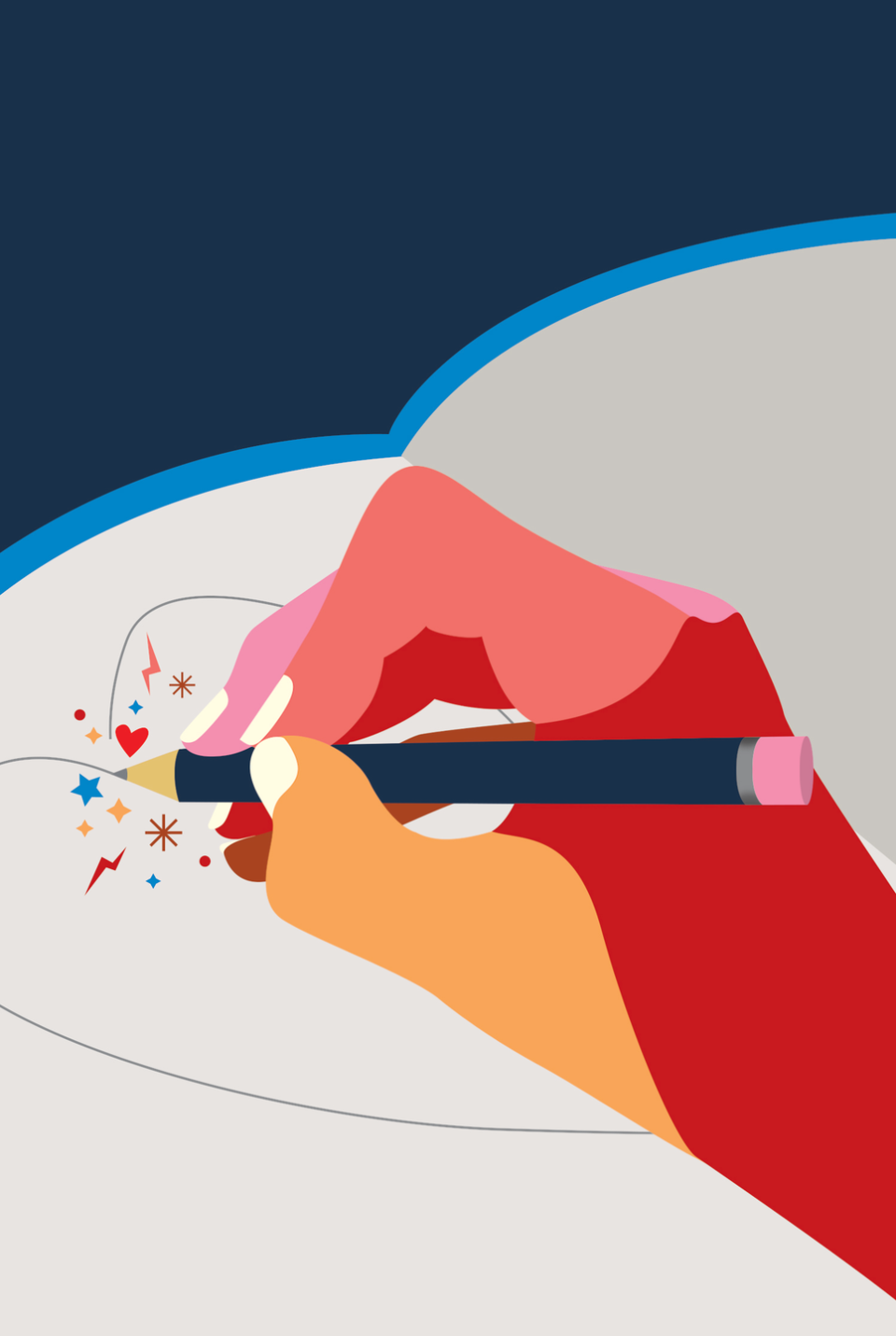Feeling Grateful Can Help You Live a Healthier and Happier Life

Good friends, family, a home, the kindness of others: These are the things we give thanks for before diving into the turkey-or at least after everyone’s gone home and the dishes are done and we can also be grateful for a coffee table to put our feet on. We know, inherently, that it’s a good thing to take stock of and appreciate what’s going right in our world-and now scientists are saying that doing so can boost our physical health as much as it can our mental state or relationships.
Studies have linked living a thankful life to fewer aches and pains, better sleep, and more. “Making gratitude a daily practice is like taking a vitamin,” says David DeSteno, PhD, a professor of psychology at Northeastern University in Boston and author of the book Emotional Success. He’s not being hyperbolic: He means it’s like an actual vitamin, making your body work better. And the deep, long-lasting power of gratitude is blissfully simple to harness.
It helps to know that when experts talk about gratitude, they mean more than saying “Thank you” the way you’ve been taught since you were old enough to speak. “Gratitude is affirming the goodness in one’s life and recognizing that its source lies outside the self,” says Robert Emmons, PhD, a professor of psychology at the University of California, Davis, and author of The Little Book of Gratitude. It’s feeling indebted, he says-not only to Aunt Charlotte for the hand-knit sweater, but also to nature for a beautifully crisp winter day.
Emmons has been studying the connection for over 15 years. In one early study, he asked a group of volunteers to write down five things they were grateful for once a week for 10 weeks. Sample entries: “The sun on my skin”; “Becoming a great-grandparent.” Other groups recorded either small hassles or neutral daily events. At the end of the study, the blessing-counters reported feeling 25 percent happier, but the rest of the findings were far more tangible: The people who practiced gratitude spent 30 percent more time exercising and had fewer health complaints.
Since then, research findings have confirmed more benefits. A 2015 study in the Journal of Health Psychology, for example, found that subjects who kept gratitude journals for just two weeks slept better and had lower blood pressure readings. Other research found that this kind of journaling resulted in a 40 percent drop in daily smoking rates after two months. Amazingly, even people who are very sick can benefit from feeling grateful: In one study, older adults who had early-stage heart failure had more consistent heart rates as well as lower levels of disease-causing inflammation when they regularly kept gratitude journals.
The link between gratitude and improved health
This all speaks to a powerful connection between our minds and our bodies, and researchers have a few theories that could help explain it. For one thing, when we feel overwhelmed-whether by deadlines or by family squabbles-our nervous systems go into a state of high alert. This arousal floods the body with stress hormones like cortisol, which over time can cause a cascade of health problems, from high blood pressure to inflammation. The sense of profound well-being that washes over us when we feel grateful sends a message to our bodies that all is well, quieting these responses. “Feelings of gratitude trigger the parasympathetic, or calming, branch of the nervous system,” says Emmons.
At the same time, appreciating the things we have may help us resist the lure of instant gratification-the impulse behind so many of our worst health habits, from smoking to skipping the gym. In his research, DeSteno found that people who felt grateful would delay an immediate cash reward in favor of a bigger one later on. “Gratitude makes us value the future. It increases people’s self-control and helps reduce impulsive behavior,” he explains. That often translates into smart health choices like going to sleep at a reasonable time and eating mindfully.
But perhaps the biggest payoff comes when we feel indebted to ourselves in the same way as we do to others. “People often report feeling grateful for their bodies, for the ability to see, smell, and hear,” says Emmons. “As a result, they take better care of themselves.” It’s all a big, healthy, happy circle of gratitude, and there’s no moment like right now-and every day-to give thanks.
Simple ways to feel more grateful

“Gratitude is a choice, and we can create it at virtually any moment in our lives,” says Emmons. “Over time, it will become more automatic.” And that may rewire our brains in a lasting way: A preliminary study found that three months after writing a series of thank-you letters, volunteers still showed increased sensitivity in the gratitude-related parts of their brains. Here, five ways to make gratitude your default setting.
Write it down in a gratitude journal
One of the most studied methods is keeping a gratitude journal. (Experts typically suggest you write down a handful of good things per day.) To get the most out of this practice, don’t just dash off a laundry list-stop and contemplate why you feel grateful, being as specific as possible: I’m grateful for my new neighbor, who helped me dig out my car in the freezing cold. Or I’ve been worried about Dad, so I’m glad he was feeling up to talking to me on the phone. In one study, people who wrote five sentences about a single positive thing got more of a boost than those who wrote one sentence about each of five different things.
Focus on little surprises
We tend to think of the things we’re grateful for with capital letters: Family, Home, Health. But over time, focusing only on such biggies can make them lose meaning. Look around for surprising little acts of kindness to give yourself a gratitude reboot, DeSteno suggests. “Think of the person at the grocery store who held the door for you when your hands were full.”
Give yourself reminders
“I stop several times throughout the day to notice, appreciate, and savor the good in my life,” says Meredith A. Pung, PhD, a clinical research coordinator in family medicine and public health at the University of California, San Diego, who studies gratitude. You might think of something you’re grateful for every time you open a door-for example, sunlight through the window, a friend bearing coffee, a new dishwasher, kid jokes.
Go mobile
Try an app like Grateful: A Gratitude Journal, which pings you with prompts to think about all you could appreciate. Or click through the website thnx4.org, which was developed by UC Berkeley’s Greater Good Science Center to act as an electronic storehouse of positivity. Along with posting what you’re grateful for, you can read strangers’ posts to get you in a thankful mood.
Say it out loud
When you have the opportunity to express your appreciation to another person, do it in a way that acknowledges the giver rather than how his or her act makes you feel. Instead of saying, “I can’t wait to wear this scarf!” phrase your thanks in a way that highlights the other person’s efforts or the qualities you like most about him or her: “You’re so thoughtful to remember my favorite color!”
Psychologist Sara Algoe, PhD, associate professor of social psychology at the University of North Carolina, Chapel Hill, says, “I call this putting the ‘you’ in ‘Thank you.’ ” Her research suggests that this approach can strengthen bonds-which is healthy for both of you. “Strong relationships have the same positive impact on our longevity as the negative impact smoking 15 cigarettes a day has on our mortality,” she says. And living longer in better health gives you more reasons to be thankful!
This story originally ran in Prevention’s November 2018 issue. For more stories like this one, subscribe to our print magazine.
('You Might Also Like',)

